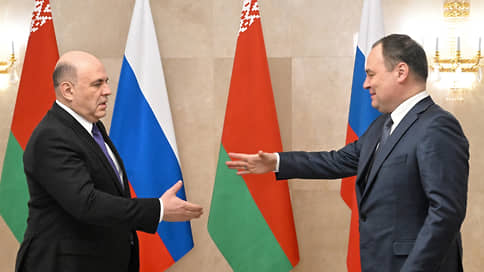Russia and Belarus have come to a balance
[ad_1]

Against the backdrop of sanctions against Russia and Belarus, their trade turnover in 2022 grew to a record $43 billion. At the same time, as was reported on Monday, March 27, at a meeting of the Council of Ministers of the Union State, Russian supplies decreased, and Belarusian supplies due to the reorientation of exports of this countries have grown significantly. The parties raised the problem of the high cost of cargo transportation – to solve it, initiatives in the transport and logistics sector are being discussed, including the access of Belarusian companies to cabotage transportation in Russia.
In Moscow, at a meeting of the Council of Ministers of the Union State of Russia and Belarus, the Prime Ministers of these countries Mikhail Mishustin and Roman Golovchenko summed up the results of trade and economic cooperation in 2022. After a 35% growth in trade turnover in 2021, this indicator added 12% in 2022, reaching $43.4 billion. At the same time, Russian exports to Belarus decreased by 7.7% over the year, to $21.3 billion, while how counter deliveries increased immediately by 41.2%, to $22 billion.
As a result, for the first time, a positive balance of trade with Moscow was recorded for Minsk.
In general, the surplus of Belarus’ foreign trade was explained by a decrease in imports to this country – Russian supplies, the Belarusian authorities noted earlier, compensated for only half of the losses in trade caused by both sanctions against this country and the retaliatory food embargo imposed by Minsk.
Mikhail Mishustin noted that the Russian Federation helped Belarus to establish alternative transit routes to “friendly” countries using Russian infrastructure. However, as analysts of the Eurasian Development Bank (EDB) noted earlier, although this factor supported Belarusian exports, it did not prevent a 20% drop in physical volumes of supplies abroad (according to data for January-September). The EDB noted that “the undervaluation of the Belarusian ruble against the Russian one” also played its role in the positive dynamics of deliveries to the Russian Federation in monetary terms.
Also at the meeting of the Council of Ministers, the increased cost of logistics was especially noted – Roman Golovchenko called it the reason for the increase in prices for goods, calling for increased coordination in the transport sector in order to “bring down the price factor”.
According to him, there is already a package of agreements in this area – some of them have been signed, some are at a high stage of readiness. One of the potential solutions was named at the meeting. Roman Golovchenko said that Moscow and Minsk are discussing the terms when Belarusian companies will be able to start performing coastal transportation across Russia. The solution to this issue is still the subject of discussion – the Belarusian authorities insist on faster access to the Russian transportation market. Minsk is also counting on a further reduction in tariffs for cargo transportation by rail in the direction of Russian ports. In general, the Belarusian prime minister called for work on the remaining restrictions and barriers (we note that two weeks ago it was reported that Russia had lifted the ban on the supply of products from fifty Belarusian agricultural enterprises).
Against the backdrop of sanctions, import substitution remains a priority, in particular through industrial cooperation. According to Mikhail Mishustin, now the authorities of the two countries are contributing to the implementation of about 20 joint projects, primarily in the fields of mechanical engineering and electronics. It is known that for these purposes Russia provides a loan to Belarus for 105 billion rubles, we are talking about financing new projects that are planned to be implemented in 2023-2024. According to Roman Golovchenko, in terms of industrial cooperation, it is necessary to “equalize the conditions” for the activities of enterprises of the two countries, speed up the implementation of agreements on a common industrial policy and create legal mechanisms for the recognition of technological operations. Also, the Belarusian prime minister urged “not to scatter finances, not to create duplicate productions.”
[ad_2]
Source link






